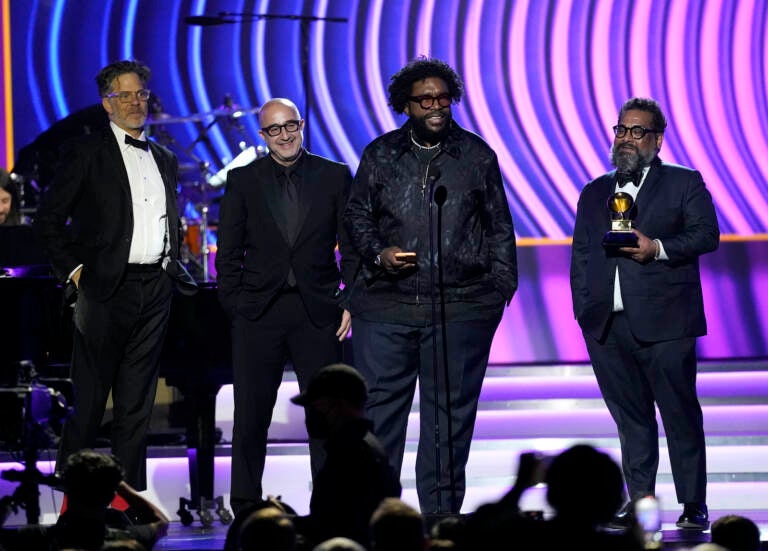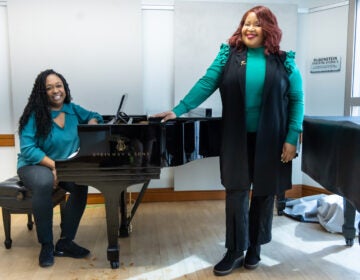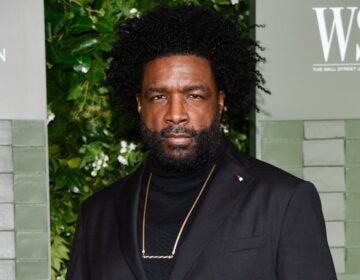Jazz, R&B, classical: Philly talent cleaned up at the Grammys
Philadelphia artists took center stage at the Grammy Awards this weekend as some of the city's talent walked away with top honors.

Robert Fyvolent, from left, David Dinerstein, Questlove, and Joseph Patel accept the award for best music film album for "Summer Of Soul" at the 64th Annual Grammy Awards on Sunday, April 3, 2022, in Las Vegas. (AP Photo/Chris Pizzello)
Philadelphia was seen at the Grammy Awards last night as some of the city’s talent got on stage to accept awards on Sunday evening.
Ahmir ‘Questlove’ Thompson had already hefted a few Grammy awards in years past, winning three as the drummer of his band The Roots. Last night was the first time he won on his own. His documentary “Summer of Soul,” about the 1969 Harlem Cultural Festival, won Best Music Film.
Singer Jazmine Sullivan stepped in to pick up the same awards that The Roots have won in the past – Best R&B Album for “Heaux Tales” and Best R&B Performance for the song “Pick Up Your Feelings.”
Another native Philadelphian who is no stranger to Grammy Awards, jazz bassist and bandleader Christian McBride, picked up his eighth award, Best Large Jazz Ensemble, for the album “For Jimmy, Wes, and Oliver.” It is a tribute to Jimmy Smith, Wes Montgomery, and Oliver Nelson.
With his big band, McBride has released three albums – including The Good Feeling (2011) and Bringin’ It (2017). All three have won Grammy Awards.
There was another big local win that was not seen during the televised ceremony: the Philadelphia Orchestra won Best Orchestral Recording for its release of symphonies by the late Florence Price. Price was the first Black woman to have her work performed by a major American orchestra in the 1930s, but her achievements had been all but forgotten since she died in the 1950s.
In both concerts and recordings, the Orchestra has been deliberately bringing Price’s work into the forefront of the classical canon.
“It really raises questions of how canons of music are made,” Orchestra president and CEO Matías Tarnopolsky said last year. “Here we have this brilliantly creative compositional voice that has been largely unheard since her death in the middle of the 20th century. And so this is really, you know – in the musical world we have to ask, ‘why is it? Why is that the case?’”
Florence Price herself answered that question when she wrote in a letter that the chief obstacles to her success were biases against her race and gender.
“Though we can’t erase the prejudices of the past, we can work together to build a more equitable future for classical music—one in which all voices are heard, where everyone sees themselves on our stages, and where artists like Florence do not fade into obscurity,” Orchestra conductor Yannick Nézet-Séguin said in a statement.
A second album of additional symphonies by Price is on the horizon, slated for next year.

Get daily updates from WHYY News!
WHYY is your source for fact-based, in-depth journalism and information. As a nonprofit organization, we rely on financial support from readers like you. Please give today.






